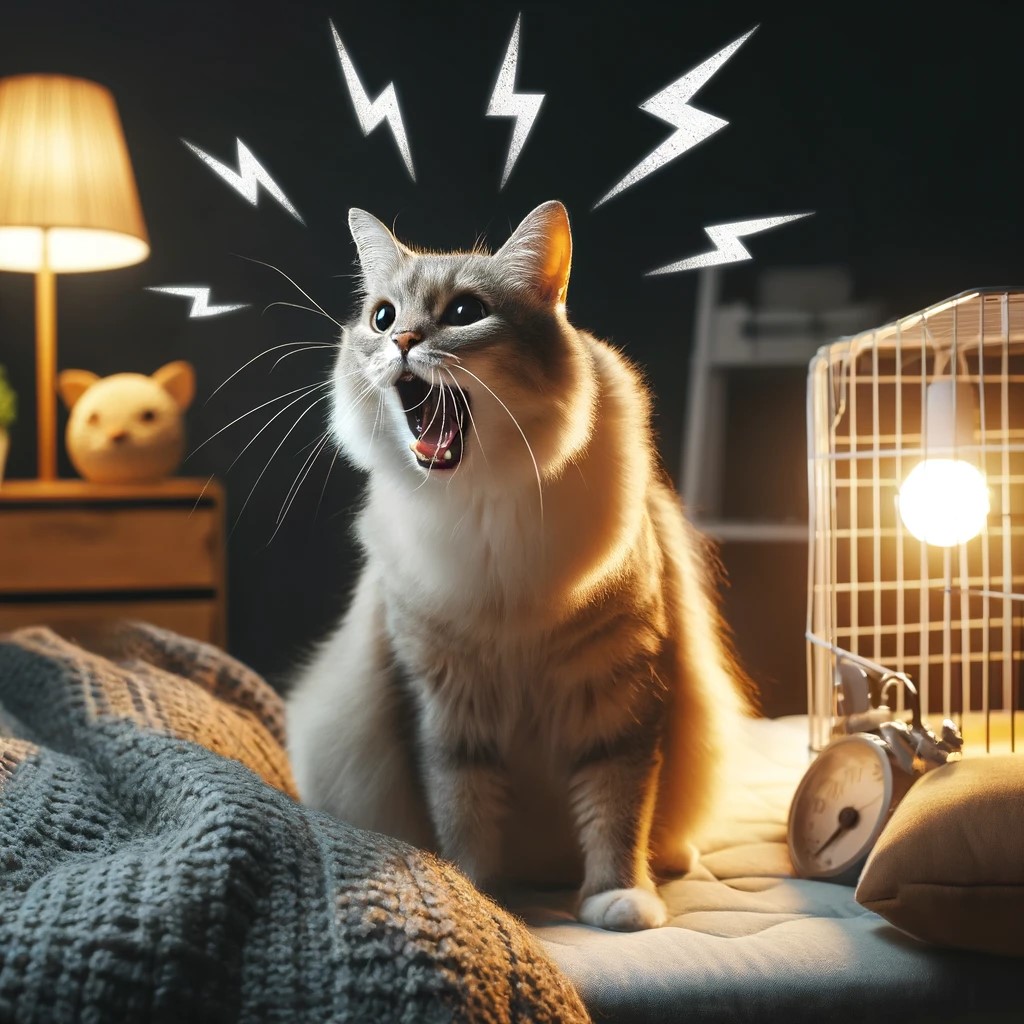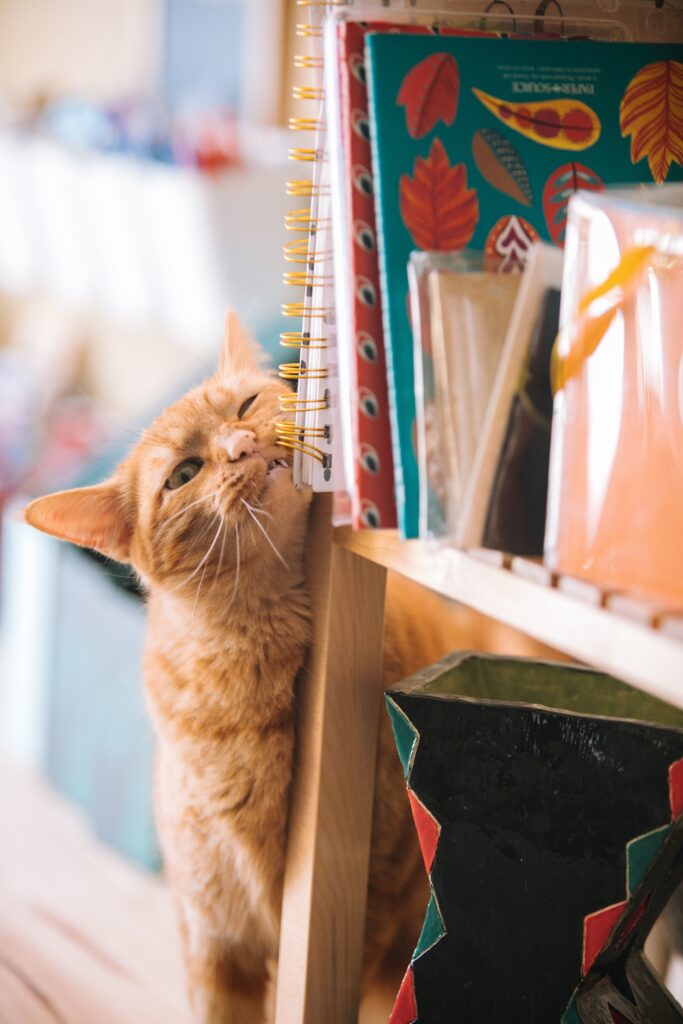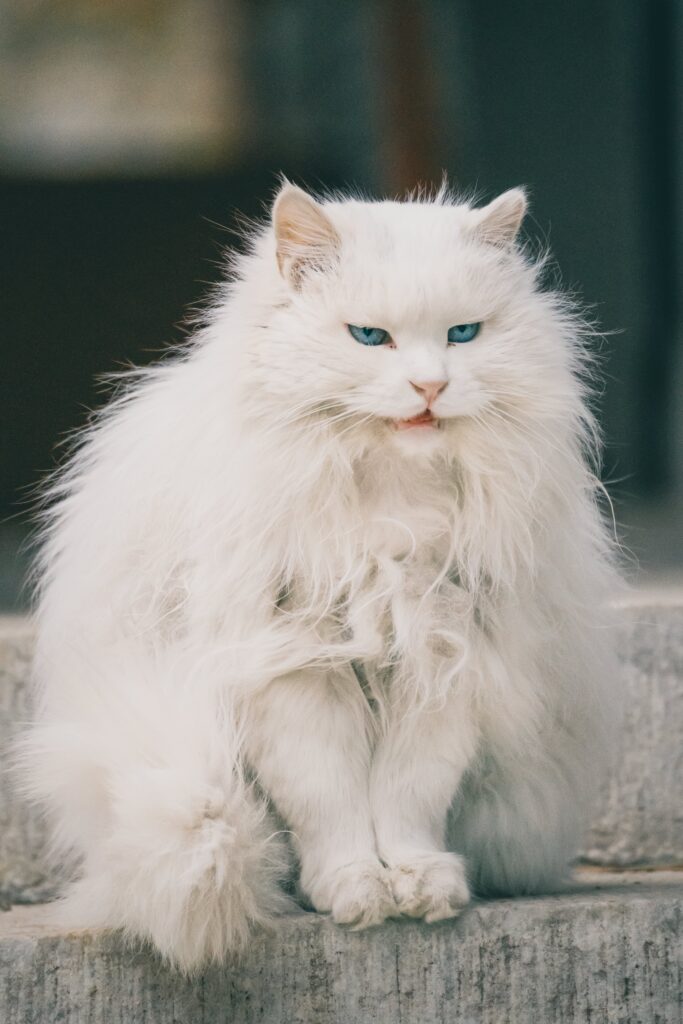As cats age, their behavior changes, reflecting physical and cognitive transformations. Understanding these changes can help cat owners provide better care for their senior feline companions.
Physical Changes and Their Behavioral Impacts
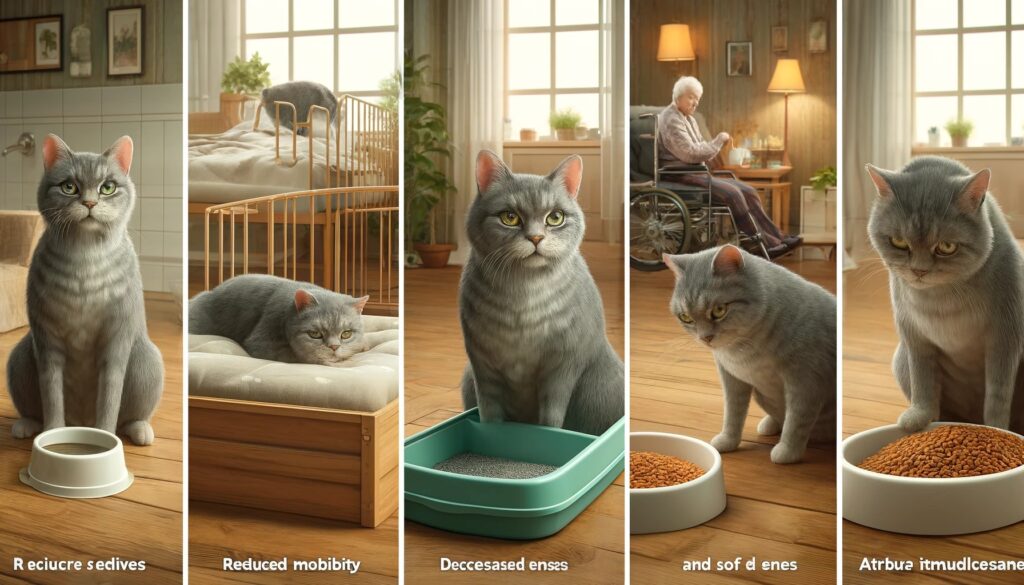
Reduced Mobility and Activity:
- Joint Pain/Arthritis: Older cats may be less active due to joint pain or arthritis, which can lead to weight gain and further joint issues.
- Tip: Provide low-rise beds and easily accessible litter boxes.
Decreased Senses:
- Vision and Hearing Loss: Aging can affect your cat’s senses, leading to anxiety or startle responses.
- Tip: Maintain a consistent environment and avoid sudden changes.
Dental Issues:
- Eating Difficulty: Dental problems can cause discomfort and affect eating habits.
- Tip: Schedule regular dental check-ups and offer soft food.
Cognitive Changes and Behavioral Impacts
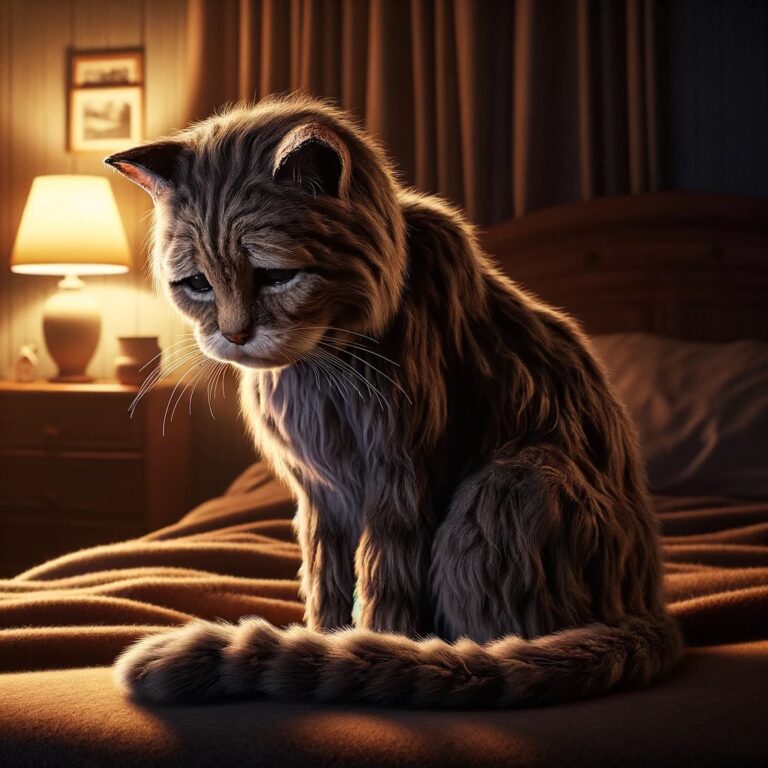
Cognitive Dysfunction Syndrome (CDS):
- Symptoms: Disorientation, altered sleep patterns, and changes in interaction.
- Tip: Keep a regular schedule and engage your cat in gentle play.
Increased Vocalization:
- Causes: Confusion, anxiety, or discomfort, often at night.
- Tip: Use a nightlight and create a cozy sleeping area.
Behavioral Changes:
- Irritability/Withdrawal: Senior cats may become more irritable or withdrawn.
- Tip: Respect their space and offer affection as needed.
Health Monitoring and Veterinary Care
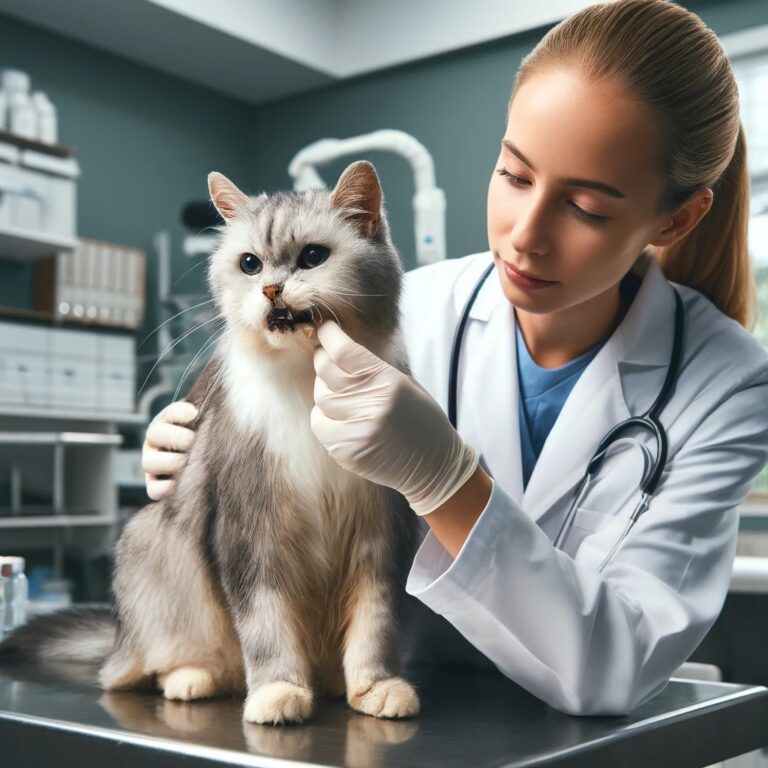
Regular Vet Visits:
- Importance: Early detection of health issues improves quality of life.
- Tip: Discuss any behavioral changes with your vet.
Pain Management:
- Critical: Managing pain is crucial for comfort.
- Tip: Consult your vet for appropriate medications or treatments.
Nutritional Needs:
- Special Diets: Senior cats might need diets supporting joint health and weight management.
- Tip: Seek vet recommendations for the best nutritional plan.
Emotional and Social Considerations
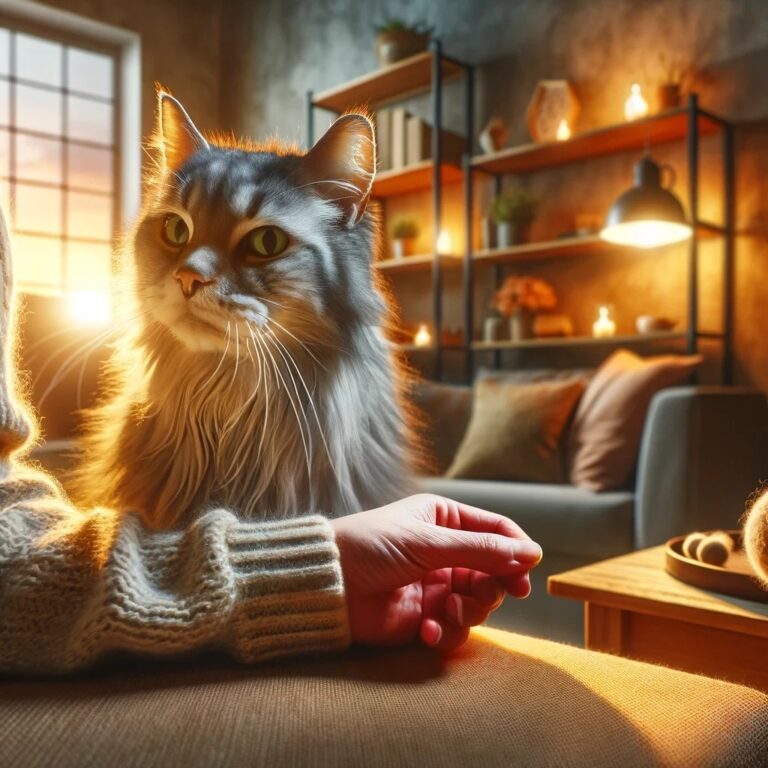
Companionship:
- Human Interaction: Consistent interaction can provide emotional comfort.
- Tip: Gentle petting and talking can help.
Environmental Enrichment:
- Mental Stimulation: Senior cats still enjoy engaging activities.
- Tip: Use interactive toys and puzzle feeders.
Additional Insights
According to Trudi Atkinson in “Practical Feline Behaviour,” older cats benefit from a stable, stress-free environment. Declines in their sensory abilities can lead to increased anxiety, so maintaining consistent routines and providing sensory and cognitive enrichment is essential.
Conclusion
Understanding and adapting to the changes that come with aging can help ensure that your senior cat enjoys a comfortable and happy life. Regular veterinary care, a supportive home environment, and attention to their evolving needs are key to managing the aging process gracefully.
By recognizing the signs of aging and responding with appropriate care, you can help your feline friend navigate their senior years with ease and dignity.

